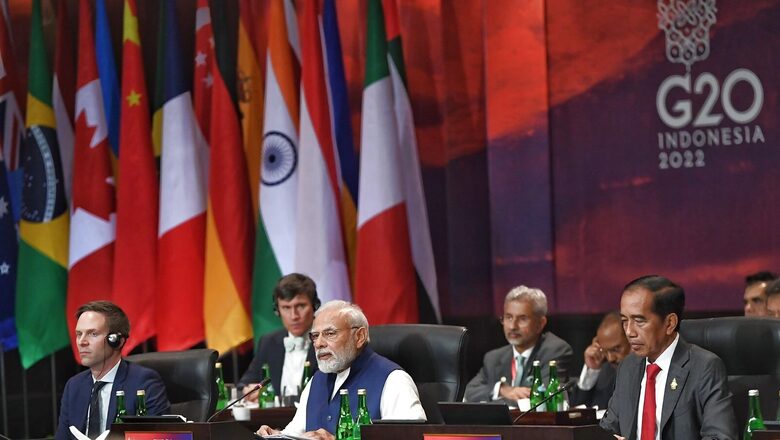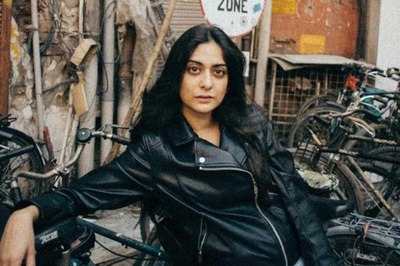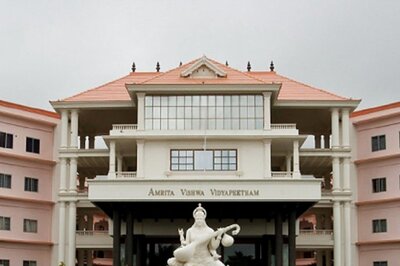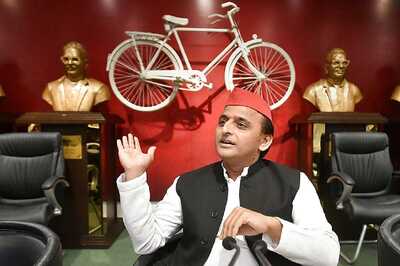
views
On 1 December 2022, India formally took over the G20 presidency, the significant multilateral forum to address the economic fallout of the Covid-19 pandemic and the Ukraine conflict, during stormy times in International Relations. When the drums are beating for strategic rivalries between the West and China-Russia, India’s G20 presidency coincides with the presidencies of the Shanghai Cooperation Organisation (SCO), and the United Nations Security Council (UNSC), respectively.
The country is celebrating Azadi Ka Amrit Mahotsav, the 75th anniversary of its Independence and has entered Amrit Kaal, the 25-year-long march to 100 years of its freedom from colonial rule. It is a ripe opportunity for India to exhibit its worldview and national interests and establish its position as a superpower.
India’s G20 presidency is one of a kind event to display Indian-ness that underpins peace, harmony, and development for all as the cornerstone of its state behaviour on the global stage.
What is India’s worldview? First, it rests on the bedrock of its unique civilisational ethos and values, placing a premium on the social and spiritual life of its ordinary citizens. India’s struggle for freedom was itself civilisational and spiritual, with thinkers like Swami Vivekananda, Maharishi Aurobindo, and Gurudeva Rabindranath Tagore as its proponents. As an aspirational nation, India accepts all religions as true and commits itself to the cultural dialogues enshrined in its Constitution and social life. In the words of Prime Minister Narendra Modi at Red Fort, “India’s diversity, which others once thought was a burden to India, is proving to be a priceless power of India. A strong testimony of its power.”
In doing so, India’s worldview is deeply embedded in its ancient dharmic tradition and reflects the re-emergence of spiritual nationalism lying dormant, as a result of multiple foreign invasions. In contemporary times, India’s civilisational heritage is a matter of pride and national belongingness for its people across the spectrum of generational, cultural, religious, and linguistic diversity. A deep understanding of India’s worldview requires an unprejudiced appraisal of its historical memory and civilisational ethos.
Second, India’s worldview emanates from a pragmatic and realist foreign policy. Since independence, India has been facing the compound national security challenge of Pakistan-enabled cross-border terrorism and China’s expansionism. China-Pakistan’s nexus, with a hegemonic approach to neighbours and a military dictatorial psyche, respectively, has led to India adopting a worldview entrenched in a muscular, nationalist, and security-first approach.
India has voiced its concerns about Pakistan’s hand in global and regional terrorism on various occasions, ranging from the G20 to the recent Counter-Terrorism Committee (CTC) of the UNSC, held in Mumbai. Additionally, India continues to face China’s unequivocal transgression on its borders with the latter’s unilateral attempts to change the status quo with a clear violation of rule of law.
While India’s worldview emphasises tolerance, peace and fundamental abhorrence of conflict and violence, the exception is self-defence of its sovereignty and territorial integrity.
Third, India’s worldview emerges from the need for new multilateralism, the decline of the West-led liberal order and its institutions’ inability to respond to critical transnational challenges, be it the Covid-19 pandemic, climate change or the Russia-Ukraine conflict. At present, the Bretton Woods institutions are ravaged by the US-China rivalry, inadequate representation of third-world countries and disproportionate share of votes against the share of the GDP.
The US-China rivalry has cast a shadow on the world order and has led to the establishment of power blocs. India’s worldview is distinct from power rivalries and localised interests and reiterates equality, fairness and empowerment of disadvantaged and underdeveloped communities coming from the Global South countries.
India’s G20 presidency is a uniquely “Indian and Global South” multilateral event in recent history with over 200 meetings at about 56 venues. Pressing issues like global economic recessions, public health and pandemics, global terrorism, food shortages, environment and climate change, future of work, and gender equality among other themes of Sustainable Development Goals (SDGs) shall be addressed that inadvertently affect countries from Latin America, Africa, Asia, and small island developing states.
India’s G20 presidency is a celebration of its culture and social philosophy. The Indian worldview is relevant in an increasingly tense global environment where outdated practices fail to respond to the challenges of a fragmented world order. From advocating for peace to being the voice of the Global South, India is a natural leading superpower in a world crippled with US-China rivalry and power blocs.
Saraswat is a Young Scholar at Vivekananda International Foundation, a New Delhi-based independent public policy think tank. Views expressed are personal.
Read all the Latest Opinions here




















Comments
0 comment